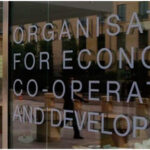In Burkina Faso, a country hit by jihadist violence since 2015, the education situation is increasingly dire.
With over 40% of schools closed by 2022, one million children in Burkina Faso are now deprived of access to education. The situation is particularly serious in the Boucle du Mouhoun, Sahel and East regions, where terrorist attacks are frequent. Many children, together with their families, are forced to flee their homes and abandon schools, which are often destroyed by jihadist terrorists.
This deprives children of a normal childhood and exposes them to even greater risks, such as exploitation, violence, trafficking and even recruitment by armed groups. Unicef in Burkina Faso has highlighted that when a child does not attend school, she is more vulnerable to exploitation and abuse. In addition to the threat of violence, food insecurity in the affected regions contributes to school dropouts, as school closures also mean the closure of kitchens that provide meals to children.
Despite the severity of the situation, only a limited portion of the affected children were reassigned to new schools. The country’s authorities and humanitarian actors are called upon to urgently step up their efforts to address this education crisis. Burkina Faso, already hit by two military coups in 2022, is immersed in a spiral of violence that has caused thousands of deaths and millions of internally displaced people.
This scenario is a hard blow for the country which, after a period of hope under the leadership of Thomas Sankara, now finds itself facing increasingly complex challenges.
It is essential to draw attention to the dramatic situation of education in Burkina Faso and seek concrete solutions to guarantee children a better future. In addition to combating violence and insecurity, it is necessary to restore the right to education for all children, so that they can have opportunities to learn and grow.

